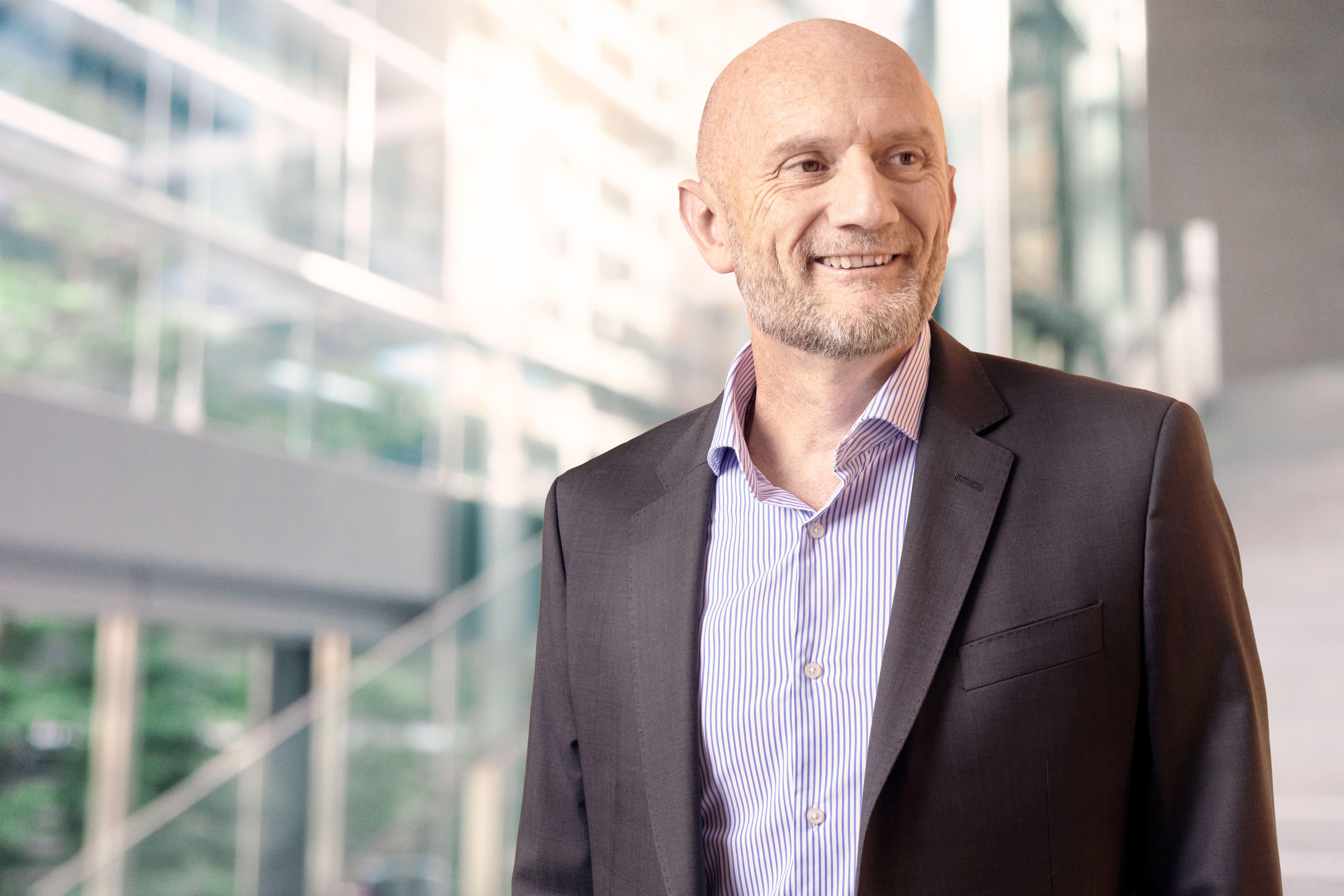- Client Stories
- Featured
- IQ Insigniam Quarterly® Magazine
- Organizational Culture
- The Changing Paradigm for Leadership
An Rx for Maximum Strength Diversity
Since caring for their first patient in 1953, Cone Health—ranked by Fortune and IBM Watson Health as one of the top 15 health systems in the U.S., and the number one mid-sized health system—has set the bar as a national leader for diversity, equity, and inclusion across its organizational spectrum.
In 2023 alone, Cone Health was recognized as one of the nation’s top 50 Best Employers for Diversity by Forbes; the company’s chief people & culture officer, Michelle Adamolekun, was named one of the Top 50 Health Care Professionals by the Diversity First Consortium; and Cone Health’s CEO, Mary Jo Cagle, MD, was named one of the 50 Most Influential Clinical Executives by Modern Healthcare.
When employees within the Cone Health system were asked to describe the organization in seven words or less, the most commonly used keywords were, “caring, diverse and inclusive” — a proverbial holy grail for employers seeking to intertwine DE&I into their corporate DNA.

That significance cannot be underscored enough, considering that Cone Health is headquartered in Greensboro, North Carolina. As noted by CNN, “Decades ago, [Greensboro] was a catalyst in the civil rights movement. Downtown, there’s a civil rights museum around the famous Woolworth’s lunch counter where four young African-American men staged their historic sit-in protest a half-century ago…a few miles away from the infamous street where a confrontation with the Ku Klux Klan turned deadly in 1977. Despite a changing population and opportunities to learn from its history, racial tensions haven’t disappeared in Greensboro, longtime residents say.”
To understand how Cone Health has made an outsized impact in DE&I—within both the national healthcare system and the Greensboro community—Insigniam Quarterly sat down with Dr. Cagle and Michelle Adamolekun to get their perspective as to how and why the provider is leading the way.
IQ: First and foremost, congratulations to you both on Cone Health being recognized by Forbes as a 2023 Best Employer for Diversity. Can you describe how Cone Health embraces DE&I as core to its culture?
Dr. Cagle: Thank you for recognizing that. We have been on this journey for more than a decade, and if you look at our values, we care for our community, we care for each other and we care for our patients. Central to that is a deep-seated respect for each and every individual, and for that to be true, DE&I must be part of that journey.
At Cone Health, we exist in a very diverse community and, therefore, our workforce is exceptionally diverse as well. Rhetorically, how could we live our values if we weren’t on a DE&I journey?
Many people solely look at diversity, equity, and inclusion through the lens of ethnicity, gender, and sexual orientation. While it certainly includes all those things, it is more than that. DE&I includes diversity of thought, diversity of religious belief, and all the things that make us unique as human beings. DE&I brings that richness into the workplace.
IQ: Likewise, Mrs. Adamolekun, congratulations on being recognized as one of the Top 50 Health Care Professionals by the Diversity First Consortium for your outstanding servant leadership and commitment to diversity. What fuels your passion for cultivating a culture of true belonging—one that empowers teams to live out their mission to improve the daily lives of friends, families, and neighbors?
Mrs. Adamolekun: Thank you so much for recognizing that award—it was truly a blessing to receive it.
I joined Cone Health in November 2021, and I can tell you that Cone Health’s journey in DE&I began before I joined the organization. It really started with Cone Health naming its first chief inclusion officer in 2012*. And in the years that followed, our awareness and understanding of how DE&I is a competitive advantage has only grown as well.
I would say that my passion overlaps with our brand promise here at Cone Health, which is to ‘be right here’ with all those we serve, which means that no one is discounted, and no one is overlooked. That promise extends to our team members and we continue to examine our systems, processes, policies, and our practices for increased effectiveness and efficiencies. We want to ensure that our team members truly feel respected. And so the commitment I feel for all of our 13,000 team members not only drives me, but it ultimately impacts the lives and health outcomes of our patients and for our community.
IQ: This issue of Insigniam Quarterly is focused on ‘the changing paradigm of leadership’. You mentioned that Cone Health has been on a decade-long journey of transformation. What was your experience operating within the previous paradigm?
Dr. Cagle: I arrived at Cone Health nearly 13 years ago, right as we were first beginning our culture journey. We were at the precipice of this journey, and so we stated what we wanted to become, but we weren’t yet there. As an organization, we had not promoted well because our leadership was not diverse by any measure. So, there was a tension between what we wanted to be and what we aspired to be, versus the reality of what we still were—and many people felt left out. That forced us to be transparent and be brutally honest with ourselves.
That said, I believe we were at the point where we felt like we must better understand how to utilize our strengths. We had all this great talent in our community, but we weren’t using it. By creating developmental programs and giving people opportunities to grow, we began to break through that tension, even though we still have a way to go. I wouldn’t say we are perfect yet—no organization is. We have improved and still have an opportunity to grow. And that is who and where we always want to be. We always want to become our better selves.
IQ: What aspects of creating a truly diverse and inclusive organization have been most difficult? Did you experience any self-doubt on this journey?
Dr. Cagle: I never doubted that it was the right thing to do. If I had doubts, it was ‘Can I be inspirational enough to enroll people to come along on the journey’? Those were the kind of doubts I faced because of the amount of change we experienced for an organization this size. My doubts were personal ones, such as whether I could exercise enough ‘inspirational squeeze’ to help move the organization forward, but I never had any doubts about it being the right thing to do.
IQ: What about challenges and setbacks? Were there lessons from your personal or professional life that you channeled to find the strength to move Cone Health toward a place of great inclusion and diversity?
Dr. Cagle: I am certain that everything in my life prepared me for where I am today, and I don’t believe that things happened by accident. When I was a freshman in college, I lost a brother to a drunk driver. How my family and I experienced that event—sitting in that emergency room, which felt like forever—shaped how I think families should or should not experience tragedy.
I was also a practicing physician for 17 years, so I believe I understand the importance of how caregivers interface with the health system, which I think prepared me as well. Beyond that, each role and experience that I’ve had were all about preparing me for this role at Cone Health.
In fact, during my first month as CEO, my mother became ill and passed away after spending several weeks in hospice care.
And while that was very difficult, and I certainly miss her, I got to see our brand promise of ‘being right there with you’ come to life. I found myself on the receiving side of someone being right here with me and my family during that time. I believe I am a different individual after having walked that path.
IQ: Were there specific challenges to growing and maintaining a diverse organization during the pandemic? How did you maintain a consistent focus on corporate culture and DE&I during a time of great upheaval?
Mrs. Adamolekun: I joined Cone Health right in the middle of the pandemic, and I can say that we were truly living our values of caring for our team members, caring for our patients, and caring for our communities. Of course, it was an incredibly stressful time. Yet, from where I stood, it was critical for us to ensure that we were caring for our team members so that they understood that our concern for their well-being—and that of their families—goes beyond just being employees.
Although we were not able to elevate some of the initiatives that we had planned, we were able to maintain a continued focus on education across our health system. But again, I think all our leaders and our team members were so focused on our patients during the pandemic.
In hindsight, while it was a very challenging time, I think we got to see at its core who our team members were, who our organization was, and we were able to maintain momentum during that time. With every challenge, there’s always a shining glimmer of hope. And I think that kept us focused in recognizing that we knew who we were, and we really lived our mission at that time.
IQ: Cone Health’s executive leadership team reflects your commitment to diversity, with women and people of color leading several disciplines throughout the organization. What advantages come with having a team consisting of diverse backgrounds, genders, and ethnicities?
Mrs. Adamolekun: I believe it is perhaps our organization’s greatest competitive advantage. It’s not just something we espouse. We experience it day in and day out. When you have an organization with team members from all walks of life, different experiences, different educational levels, it allows us to garner that diversity of thought to be more innovative around how we solve some of the challenges that we face.
The secret sauce is in creating a sense of belonging where individuals really feel and experience that belonging. And when they do, they are more engaged. And when individuals are engaged, it creates the environment for us to be able to achieve our goals and to live our mission to care for our communities and our patients.
At the end of the day, our goal as an organization is for diversity, equity, and inclusion to become intertwined with our DNA; it is foundational to who we are.
IQ: Given that the ELT is so diverse, what challenges arise when working with a team that possesses such diversity in terms of experiences and diversity of thought?
Dr. Cagle: To give perspective, our executive leadership team is almost 55% diverse if you look at ethnicity and gender. It represents the most diverse executive leadership team that Cone Health has ever had.
Part of the work that you do when you have exceptional individual leaders is to catalyze that effort into creating a high-performing team. However, when you do have a fabulous group of diverse leaders, the more diverse they are the longer it takes for them to really get to know each other and fully trust each other because they come from different backgrounds.
I will also say that I want every different point of view at the table when we are making hard decisions. And I intentionally built a team with different points of view because of the diversity of the people we serve. But before people are willing to have intense debates for the greater good, they must trust each other. My sisters and I can have a great debate because we know we’re going to love each other when it’s over with, right?
To create those bonds, we have regular retreats and work on knowing each other well to build that trust. The advantages far outweigh the challenges, it just adds a little bit of time, and it requires the team members to undergo some self-examination about biases and prejudices that maybe they’ve not done before.
IQ: I’ve heard that Cone Health created a system where team members can acknowledge peers who are championing DE&I through their actions. Can you tell us more?
Mrs. Adamolekun: Like many organizations, we understand how important recognition is to our team members, and that is a part of our strategic infrastructure to ensure that we are engaging our team members and appreciating them for everything they do to propel our mission forward.
As we discovered that many of our teammates and colleagues are truly passionate about DE&I work, we wanted to create a space where individuals could feel safe, but also be brave within our organization to create an inclusive and equitable culture.
That is why we developed a recognition program, including a ‘DEI Changemakers Award’ which we unveiled in 2022. We have witnessed a great response from our team members who seek to honor and recognize their colleagues as walking the walk, if you will, as it relates to DE&I.
IQ: Cone Health’s front-line employees reflect the diversity found in your ELT. What competitive advantages have you observed on the front-line level?
Mrs. Adamolekun: Across the organization, at every level, having a diverse mix of front-line employees helps our patients feel respected, accepted, and valued. I would say that our front line is equally as empowered as our diverse leadership team, and they are able to provide exceptional patient care.
We also know that there’s something special when our patients receive the care that they expect and deserve from team members who have similar backgrounds as they do. I’m a true believer that we are stronger because of our diversity and the talented team that we have.
IQ: How does Cone Health measure and track its progress in terms of diversity and inclusion?
Mrs. Adamolekun: The first thing I would say, for context, is that DE&I is a journey. It’s not a sprint—it’s a marathon. We are always aspiring to improve and get better.
For us, it first starts with direct feedback from our team members through our engagement survey, which we have incorporated into a DE&I index based on a set of core questions. We use this to assess how our employees are experiencing our environments. We’re able to get a better understanding of where and how we can continue to improve.
Additionally, each year, Cone Health ensures that one of our strategic priorities relates to DE&I. For 2023, our priority is focused on health equity gaps in Black populations and African-American hypertension control. Within this metric, we monitor the patient’s progress as we reduce hypertension, for instance.
We also track the number of diverse, non-white promotions at the leadership level, and we consistently look at parity metrics across our organization to ensure that we continue to challenge ourselves to reflect the communities that we serve. All these things are embedded in our systems relative to recruitment. We also leverage diverse interview panels to assess our top candidates within a diverse applicant pool.
We also publish our annual DE&I report, which captures the impact that we are making. Lastly, we have an ‘Authentic Moments’ podcast, for which we track engagement. It has been amazing to see some of the topics that are being addressed in a very pragmatic way so that all our team members at all various levels can really relate, learn and grow in DE&I.
IQ: What advice would you share with other leaders seeking to embrace diversity and inclusion in a meaningful way?
Mrs. Adamolekun: First, you must understand the employee value proposition that you want to convey to your employee population. And it starts with really defining why from the top. Why is DE&I important to the organization’s culture, to its retention efforts, and to its financial wellness? The why has to be top of mind before you even embark on the next step, which I think of equal importance is conducting a thorough analysis.
One of my mantras is ‘In God we trust. Everyone else must bring data.’ So I recommend using data for insights, as well as focus groups, interviews, and surveys to identify gaps and build strategies by collaborating with diverse stakeholders across the organization. DE&I can’t be an ‘HR thing’. It must live across the organization as a whole, and everyone has to be involved.
I also believe that it is important to define diversity, equity, and inclusion. Many times, organizations assume everyone is on the same page, but we know people have their own definitions. You must define it so that everyone understands what it means to be diverse for your organization. And by the way, our employees can sense authenticity. That is why it is so important to embed it in your systems, processes, and policies. And it’s not just something you espouse, but something you are basically living day in and day out.
Lastly, I would be remised not to acknowledge the importance of working with an external partner, such as Insigniam, who has been on this journey with Cone Health since 2010. It is critical to have a trusted partner who can support you through the highs and lows along your journey, and Insigniam has been instrumental in helping us get to where we are today. My advice to others would be to ensure that you have someone focused on making sure that you’re hitting the mark on your own journey. Don’t leave it to chance.



